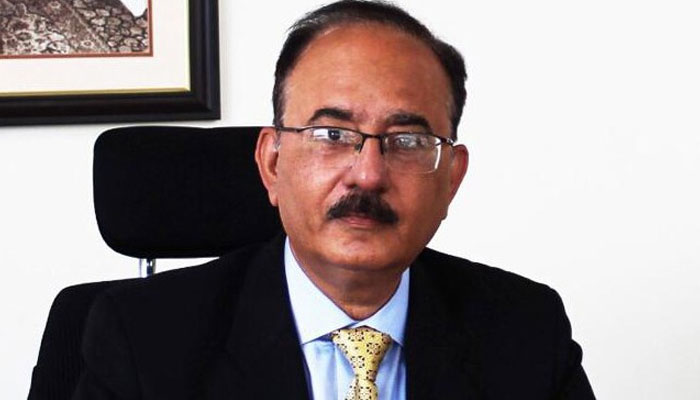Ogra stresses need for regulatory reforms in LPG sector
KARACHI: Chairman of the Oil and Gas Regulatory Authority (Ogra) Masroor Khan has said that the share of liquefied petroleum gas (LPG) in Pakistan’s national energy mix has doubled from 1.0 per cent to 2.0 percent and is expected to rise steadily in the coming years.
“We need to develop world-class manufacturing facilities for cylinders, bowser trucks, and other related equipment to meet the rapidly growing demand,” he said during a visit to the Pakistan Federation of Chambers of Commerce and Industry (FPCCI).
Atif Ikram Sheikh, president of the FPCCI, called for a new law to update Ogra’s regulatory framework, ensuring it reflects the realities of the LPG supply chain in Pakistan. He emphasised the need for a regulatory environment that is both facilitative and fair to all stakeholders and consumers.
Sheikh elaborated that the existing Ogra law does not cover retailers and ends with distributors. “This is why so many accidents are occurring at the retail level,” he noted. “Distributors should also be legally required to provide data on their supplies to retail outlets.” He added that the law should apply to all industry players, requiring them to obtain the necessary licenses and adhere to national LPG regulations.
Masroor Khan, along with Karachi Commissioner Syed Hassan Ali Naqvi visited the FPCCI Head Office at the Federation House in Karachi on Monday to discuss key issues, including supply chain enforcement, pricing, storage, quality control, and the health, safety, and environmental regulations governing the LPG sector.
Sheikh pointed out that this was the Ogra chairman’s third meeting at the FPCCI in 2024, underscoring the critical nature of these issues and the commitment of stakeholders to find solutions. The Ogra chairman was accompanied by three senior executive directors of the authority.
Sheikh said that the FPCCI wants Ogra to clamp down on the unregulated and unlicenced players in the LPG industry, as these entities are jeopardizing the safety and livelihoods of both consumers and businesses. He also called for stricter regulations governing LPG filling stations and shops, along with the standardisation of LPG cylinders and quality assurance protocols.
Convener of the FPCCI’s Central Standing Committee on the LPG Industry Ali Haider stressed that only licensed LPG players are following the law and industry standards, while unlicenced entities enjoy an unfair advantage. He added that the issue of LPG margins has been unresolved since 2016, and it is now time for Ogra to establish a mechanism to address this matter in consultation with the business community.
Ali Naqvi acknowledged the considerable efforts of law enforcement and administrative departments in addressing LPG-related issues. However, he expressed the government’s deep concern over the frequency of LPG-related accidents and loss of life. “This is an ongoing effort, and we have already made hundreds of shops comply with the law,” he said. “The provincial ombudsman also recommends updating the Ogra law to make it more effective in enforcing safety standards.”
-
 King Charles Speaks Out Over Andrew's Scandal: 'Stand Ready To Help Police'
King Charles Speaks Out Over Andrew's Scandal: 'Stand Ready To Help Police' -
 Dax Shepard Recalls Horrifying Accident That Almost Killed Him
Dax Shepard Recalls Horrifying Accident That Almost Killed Him -
 Logan Paul's Bodyguard Hits Fan On Super Bowl Day
Logan Paul's Bodyguard Hits Fan On Super Bowl Day -
 Epstein Files: Anne Hathaway Mentioned As Highly Desired Guest For Bill Gates?
Epstein Files: Anne Hathaway Mentioned As Highly Desired Guest For Bill Gates? -
 Prince Harry Under A Lot Of Stress As Meghan Markle Makes Bizarre Demands
Prince Harry Under A Lot Of Stress As Meghan Markle Makes Bizarre Demands -
 Princess Beatrice, Eugenie's Subtle Break From Disgraced Parents Exposed
Princess Beatrice, Eugenie's Subtle Break From Disgraced Parents Exposed -
 Baby Left In Running Bathtub Dies After Father ‘forgets’ Him
Baby Left In Running Bathtub Dies After Father ‘forgets’ Him -
 King Charles Takes A Major Step To Keep Horrified Prince William Out Of The Loop On Andrew: Insider
King Charles Takes A Major Step To Keep Horrified Prince William Out Of The Loop On Andrew: Insider -
 Taylor Swift Set To Make Biggest Cut From Her Wedding Guest: Blake Lively Or Ryan Reynolds
Taylor Swift Set To Make Biggest Cut From Her Wedding Guest: Blake Lively Or Ryan Reynolds -
 Prince William Meets Saudi Crown Prince Mohammed Bin Salman
Prince William Meets Saudi Crown Prince Mohammed Bin Salman -
 Brooklyn Beckham Brutally Cuts Off Inner Circle Amid Feud With David, Victoria
Brooklyn Beckham Brutally Cuts Off Inner Circle Amid Feud With David, Victoria -
 Kaley Cuoco Reveals Why Fiance Tom Pelphrey Sleeps In Seperate Room
Kaley Cuoco Reveals Why Fiance Tom Pelphrey Sleeps In Seperate Room -
 Ghislaine Maxwell Will Not Answer Congress Questions On Epstein
Ghislaine Maxwell Will Not Answer Congress Questions On Epstein -
 Kensington Palace Announces Prince William's Arrival In Saudi Arabia
Kensington Palace Announces Prince William's Arrival In Saudi Arabia -
 ‘Andrew Crisis Follows King Charles Everywhere Now’
‘Andrew Crisis Follows King Charles Everywhere Now’ -
 Jennifer Aniston Already Decided Her Wedding Dress?
Jennifer Aniston Already Decided Her Wedding Dress?




